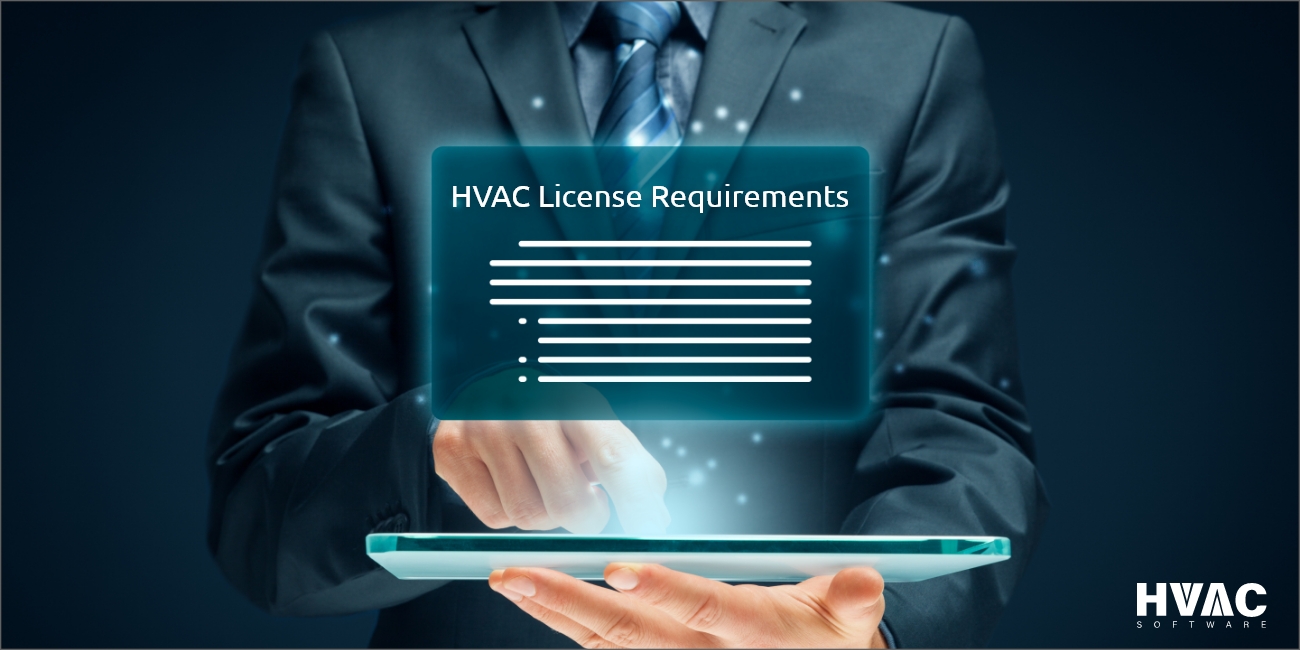Within the last five years, the number of HVAC or Heating, Ventilation, and Air Conditioning contractors in the United States has grown by 3.1%.
The HVAC is expected to grow up to $367.5 billion by 2030. The boom in the construction of commercial and residential buildings and changing consumer demands are responsible for the surge in the industry.
There are many HVAC ideas followed by lucrative business opportunities to grab, and if you want to explore the benefits of the rising HVAC industry, you need to create a solid HVAC business.
But what are the steps involved in starting an HVAC business?
Don’t worry. We got you covered. But before we jump on to the core of the topic, let’s understand a few important points before starting a successful HVAC business.
Contents
- Steps For Starting An HVAC Business
- Market research and which service to offer
- Get license before starting the business
- Create HVAC business plan
- Register your business
- Create business bank account and credit card
- Purchase HVAC tools and equipment
- Determine HVAC services pricing
- Get your first HVAC business customer
- Market Your HVAC business
- Hire Expert HVAC professionals
- Use HVAC software to manage your service operations
- FAQs
- Kick-start Your HVAC Business
Now let’s see how you can start your HVAC company.
Steps for Starting an HVAC Business
There are multiple ways to kickstart your HVAC business, depending on your niche. We have selected the most common HVAC service business to give a brief idea of how to start a successful HVAC company.
1. Market research and which service to offer
You have decided to enter the industry; that’s great. But how will you run the business if you don’t have in-depth or primary knowledge about it? Before starting your own business, you need to do market research on the HVAC industry.
Moreover, get a clear answer to the following questions before starting your business-
- Who is your target audience?
- What services do your customers want from your business?
- What scale of business do you want to establish?
- Do you have enough capital to start a successful HVAC business?
- Which sector do you want to focus on first?
Market research will help you to see how viable your heating and cooling business is. Also, deciding which type of services you want to offer is essential. If you are a beginner, you should start with limited services; so, you can concentrate on essential services.
Based on the services- you will be able to move ahead in your own business and start planning accordingly.
2. Get an HVAC business license and certification before you start the business

HVAC is a business where trust is crucial because customers allow technicians to their premises and space. And do you know what’s the easiest way to gain a client’s trust for an HVAC technician? It is an HVAC certified and licensed business.
Moreover, there are numerous HVAC business license and certificate programs, but it always depends on the state. For instance, if you are from the USA, North American Technician Excellence (NATE) offers certified professional courses for air conditioning units, gas heating, heat pumps, oil heating, and commercial refrigeration.
There are different types of HVAC certification
- EPA Type I Certification – For servicing small appliances
- EPA Type II Certification – For servicing high-pressure systems
- EPA Type III Certification – For servicing low-pressure systems
- Universal EPA Certificate
Note: To enroll in certification, you don’t need a bachelor’s degree, high school and GED diploma are enough.
Now, let us simplify about license process. Like certification, every state has a different license method. Having a license will make your HVAC business legal and trustworthy. This will surely result in a large clientele followed by a successful HVAC company.
Also, check with local state laws to make sure your business has the proper credentials. Furthermore, you will get your business tax number, also referred to as Employer Identification Number (EIN). It will be used to identify the tax account of a business entity.
3. Create HVAC Business Plan

HVAC business plan is the most critical point in starting a profitable HVAC business. To kickstart your own new HVAC business, you need to document your target market, HVAC niche, local competition, business model, revenue projection, and financial obligations, among other factors to kickstart your own HVAC business.
A business plan can help you remain on track with your planning and help you focus on a well-thought path to achieve business success.
You also need to filter down the service areas you need to cover with your HVAC service and ensure that you hire a professional team to deliver the planned services with the best effect.
Finalize the legal business structure that’ll apply to your new HVAC business. Ensure that you have a creative core team that can help you to tweak your business approach based on the current market scenario.
Operate flexibly and adapt to the changing industry and consumer behavior to succeed in the long run. Now, after being ready with the business plan; let’s understand further plans to register the business.
4. Register your HVAC business legally
Be your own boss and register for your own business legally. However, you need to choose between the sole proprietorship, LLC (Limited Liability Company), or a partnership that helps you to move forward with your HVAC business.
Sole proprietorship– It is for businesses who want to start their own HVAC companies. In the sole proprietor, there’s just one owner who pays for tax and gets profit from earned income. He is even responsible for surrendering his personal assets including the home, in case anyone sues him.
Partnership– As the name suggested, there would be more than one business owner in the HVAC business.
LLC– The limited liability company is a corporate structure that protects owners from being away from repayment for the company’s debts or liabilities. Regulations of LLC are different in every state.
Registering your heating, ventilation, and air conditioning business will not happen overnight, so ensure that you are submitting the right document. Otherwise, it will take more time to make your HVAC business legal.
5. Create a business bank account and credit card
One of the frequent mistakes HVAC businesses make is to mix their personal bank accounts in the business. Even though you are completely new, do not use your personal bank account in the business account.
Create a business bank account or get a credit card for every official transaction. Owning a business bank account will help you to have direct transactions with the clients. So, you know where income and expenses are going.
Also, you will have clear information; so, there would be no confusion while tallying the balance sheet. There will be a separate bank account for both personal and professional.
6. Purchase HVAC tools and equipment
Will you be able to drive a car if you don’t have petrol or diesel in it? No, because it is essential to have it and without that, there’s no point in owning a car. Likewise, to start an HVAC business, you are required to purchase HVAC tools and equipment.
Following the list of tools and equipment, you need to include in your must-have equipment list-
- Caulking gun
- Tape measures
- Vacuum pump
- Flashlights
- Thermometers
- Drillers
- Cutters
- Wrenches
As an HVAC business owner, it would be a wise decision to purchase primary HVAC tools and equipment that will help you to use it for a long time. You can ask any certified HVAC technician as they would have a profound knowledge about it.
Pro Tip– The equipment costs will be around $200-$500.
7. Decide your HVAC services pricing
As HVAC business owners, you cannot skip this step. It is vital to decide your HVAC services pricing and generate a detailed pricing chart. Every business in the HVAC industry offers different services, so there is no certain rule that you have to keep pricing in such a way.
However, to run a profitable HVAC business, you need to determine prices that cover your expenses and make a profit. You can follow points to decide on service pricing:
- Check competitor prices and learn about average rates in your area
- Meet the expenses and match your profit margin targets
- Create a markup based on tools, service, HVAC technicians, and other additional services
- You can consider different factors like equipment cost, vehicles, insurance, supplies, safety equipment, workforce expenses, marketing cost, and office setup.
Also, there are three types of pricing models:
7.1 Hourly rate pricing model
You can decide the service rate on the basis of hours. It will help you to make more money and save time. This pricing strategy is helpful for HVAC contractors and is used when you a time-consuming or commercial HVAC contracts are undertaken.
7.2 Flat rate pricing model
This pricing model allows HVAC contractors to predict the project cost. In this pricing strategy, a quote is prepared and used when the HVAC company knows how much time it will take to complete the project.
7.3 Labor and materials pricing model
This pricing model is used when the clients are charged based on the amount of the labor and number of equipment required. It becomes easier to calculate operating cost after using this pricing strategy.
8. Get your first HVAC customer
Once you have prepared your business plan, get the HVAC business license, registered for your HVAC business, and opened your bank account, you are ready to own a business. However, the work is not over yet, it is like you have prepared a base and it is time to launch the established strategies,
After following the process you will get your first HVAC customer. Give your best service and ask them to give you feedback. So, you can know how to improve your services and what clients like and what don’t.
To establish a successful HVAC company, you need to ensure that you match the client’s expectations.
9. Generate good HVAC leads by marketing your business

Marketing is an essential factor for a profitable successful business. First, you need to reach out to the target market and later meet profit margins. However, you need to create a marketing plan and strategy. Here’s what you require to promote your HVAC business:
Built a strong online presence
Online has become the fastest way to find new clients. Hence, it is crucial to set up a strong online presence, so that HVAC customers can know about your business. You can create a website, social media pages, and Google Local Services Ads.
Create branding
When a company becomes a brand, value has been added. It helps to give a look and personality and pass the message to all the potential customers that it is a professional operation. You can create business cards, and official websites, make brand logos, and have a uniform color for them.
Word of mouth marketing
One of the oldest and most effective marketing methods is word-of-mouth. Ask your clients if they like your service, and spread the word about it. To generate leads, you can knock on doors to distribute flyers and advertise your service.
Thus, whether a new business or existing business, you need to market your business.
10. Hire expert HVAC professionals
Now, that you have business tips and plans to run an HVAC business, you need to hire an HVAC professional. They will perform the work and help you to provide services to potential customers.
Hiring expert HVAC professionals will ease your work and you can focus on tasks like business plans, communicating with the sales team, marketing your services, and paying more attention to the customers.
11. Use HVAC software to manage your service operations
The last but effective step to starting an HVAC business is using HVAC software. Many business owners like you( whether small business owners or large business owners) think they don’t need it.
Because there’s a myth that it is expensive and complicated. But in reality, it is completely the opposite, it is easy and you don’t have to spend money. Using HVAC software will streamline your daily operation and if you are making a realistic business plan, HVAC software should be on the list.
The above step-by-step guide will help you to start an HVAC business. Let’s see what are the most frequently asked questions.
Frequently Asked Questions
Is the HVAC service business profitable?
Yes, the HVAC service business is profitable because of the rising demand and customers’ willingness to pay higher for a quality service experience. If you can set the foundation strong and follow the essential steps to establish your HVAC service business then it becomes easier to increase your bottom line.How to start an HVAC business?
There are different ways to start an HVAC business, depending upon the type of business you choose to establish. But if we talk about the general HVAC service business then you need to create a business plan, strong online and offline presence, a great marketing strategy, and a professional workforce to start your business.What are the advanced technologies required in an HVAC service business?
You need to integrate a professional HVAC service management tool to automate your business process and remove human error and redundancies. It can help to scale the productivity of your workforce and streamline your service operations.What’s the cost of starting an HVAC business?
The HVAC business startup costs range up to $100,000 if you want everything upfront. But if you want to start slow and within limits, the average cost of starting a heating and cooling business is around $2000-10,000.How to compete with the established HVAC service businesses?
If you want to outshine the big guns in the industry, you need to perform solid competitor analysis and figure out weak points and strengthen others. You need to fulfill the weak elements in your business and enhance the quality of HVAC service.Kick-start Your HVAC Business
The rising demand in the HVAC industry has created a gap between quality and affordability.
If you are determined to fulfill the requirement in the industry and are able to deliver quality customer service, then there’s no stopping you to climb the success ladder.
Now that you know the nitty-gritty elements of starting an HVAC service business, we hope you bring your idea to reality with finesse.
If you have queries or questions, do leave a comment below, and we’ll try our best to answer them.

